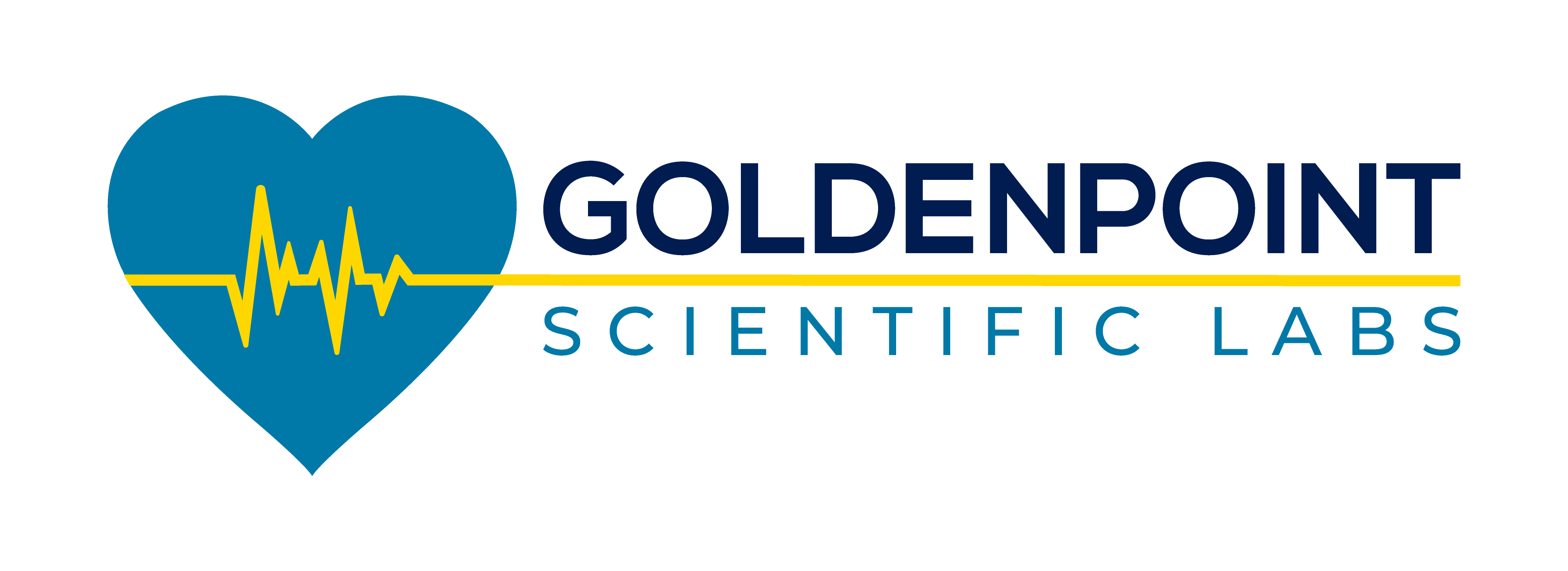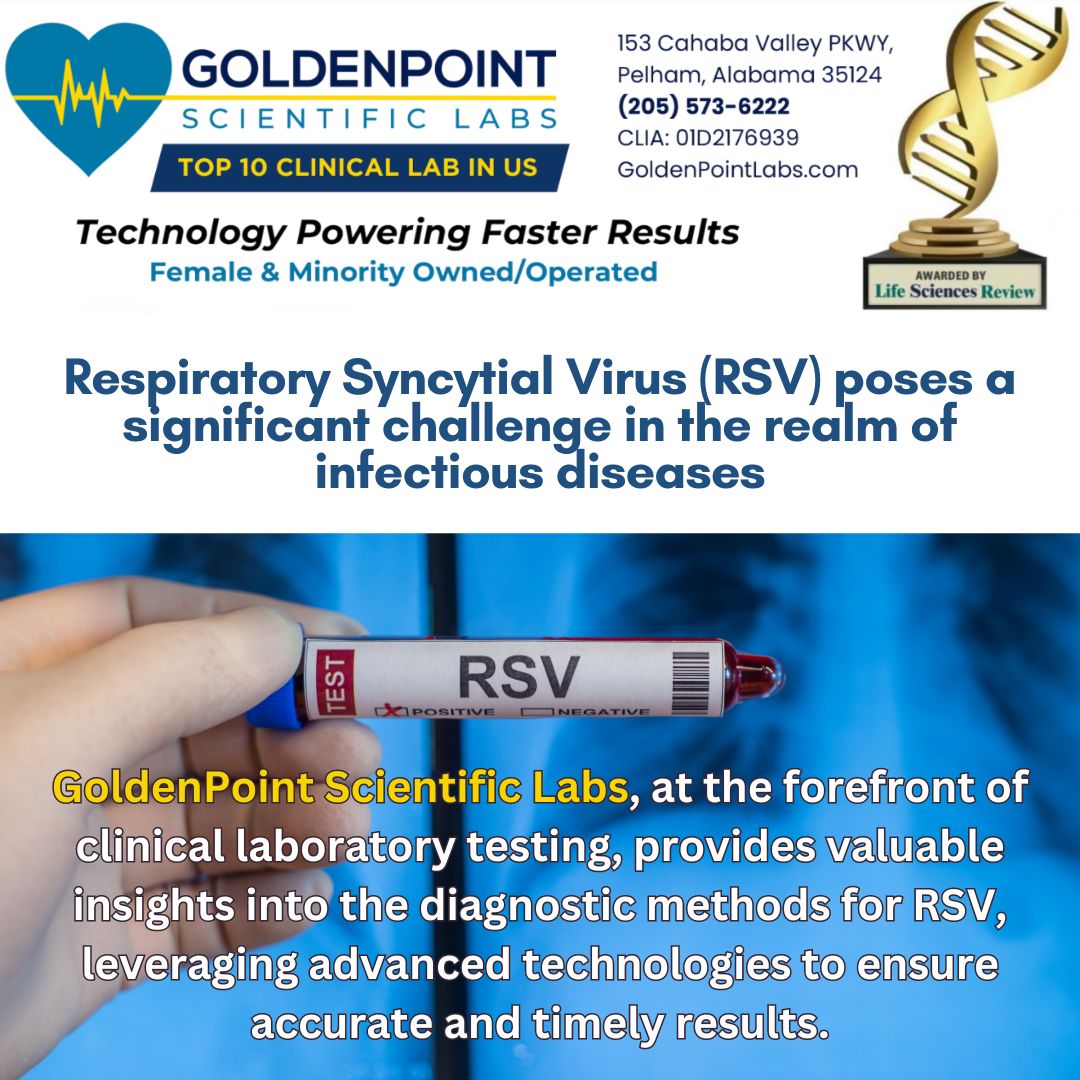Respiratory Syncytial Virus (RSV) poses a significant challenge in the realm of infectious diseases, especially due to its nonspecific clinical symptoms that can mimic other viral respiratory infections and certain bacterial infections.
GoldenPoint Scientific Labs, at the forefront of clinical laboratory testing, provides valuable insights into the diagnostic methods for RSV, leveraging advanced technologies to ensure accurate and timely results.
Understanding RSV Clinical Symptoms
The clinical symptoms of RSV are nonspecific, creating a challenge for healthcare providers to differentiate it from other respiratory infections. These symptoms can overlap with both viral respiratory infections and bacterial infections, emphasizing the need for precise laboratory testing to confirm RSV infection.
Laboratory Tests for Confirming RSV Infection
Several laboratory tests are available for confirming RSV infection, and these tests can be performed on both upper and lower respiratory specimens. The most commonly used clinical laboratory tests for RSV include:
- Real-time Reverse Transcription-Polymerase Chain Reaction (rRT-PCR):
- This highly sensitive method is more effective than culture and antigen testing.
- It is particularly useful for its ability to detect RSV at lower viral loads, making it a preferred choice for accurate and early diagnosis.
- Antigen Testing:
- Commonly used in children, this method is less sensitive in adults.
- While effective in pediatric cases, healthcare providers need to be aware of its limitations in older age groups.
- Less Commonly Used Tests:
- Viral Culture
- Serology (primarily used for research and surveillance studies)
Differentiating RSV Subtypes
Some laboratory tests can differentiate between RSV subtypes A and B. However, the clinical significance of these subtypes remains unclear. GoldenPoint Scientific Labs recommends consulting with experienced laboratorians for guidance on the appropriate respiratory specimen to use for testing.
RSV Testing for Infants and Young Children
In the case of infants and young children, both rRT-PCR and antigen detection tests are effective diagnostic methods for detecting RSV infection. The sensitivity of RSV antigen detection tests typically ranges from 80% to 90% in this age group. Healthcare providers are encouraged to seek guidance from experienced laboratorians for accurate interpretation of results.
RSV Testing for Older Children, Adolescents, and Adults
For older age groups, especially adolescents and adults, healthcare providers should prioritize highly sensitive rRT-PCR assays when testing for RSV. Commercially available rRT-PCR assays are recommended, as they often surpass the sensitivity of virus isolation and antigen detection methods. Antigen tests are not as sensitive for older individuals due to potentially lower viral loads in their respiratory specimens.
GoldenPoint Scientific Labs emphasizes the importance of consulting with experienced laboratorians to ensure the proper interpretation of results, taking into consideration the age group and specific circumstances of the individual being tested.
GoldenPoint Scientific Labs, with its commitment to advanced clinical laboratory testing, plays a crucial role in diagnosing RSV infections accurately and efficiently. By employing cutting-edge technologies and collaborating with experienced laboratorians, we contribute to the timely identification and management of RSV cases. If you would like to know more about our clinical testing services get in touch today.
Last Reviewed: January 18, 2024
#GoldenPointScientificLabs #RSVTesting #ClinicalLaboratory #DiagnosticMethods #HealthcareDiagnosis #LaboratoryTechnology #RespiratoryInfections #InfectiousDiseases #MedicalTesting #HealthcareInsights #LaboratoryExperts #RSVInfection #AdvancedDiagnostic #PrecisionMedicine #HealthcareSolutions #MedicalResearch #LaboratoryTesting #GoldenPointInsights #DiagnosticAccuracy #RespiratorySyncytialVirus #ClinicalSymptoms #ViralInfections #HealthcareProviders



